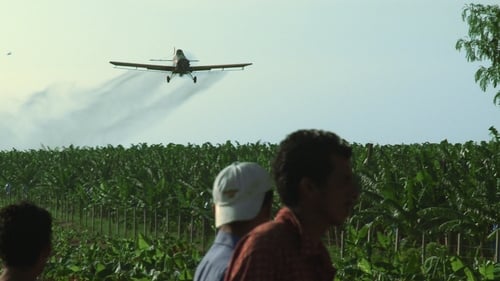
Director of Photography
Nicaragua, 1978: Lorena and Commandant Dario are lovers and members of a guerrilla squad fighting the Somoza dictatorship. They share one last kiss and face the battle.

Screenplay
From the experience of the war in Nicaragua in the 80's, the last director of information and analysis of the KGB, Nikolai Leonov, General Cuban intelligence, Fabian Escalante, and the Sandinista intelligence chief, Lenin Cerna, explain the role played in the operations, covert activities and the effects of the crisis in the USSR in the conflict, along with other evidence such as Eden Pastora, Boris Kolomiakov, Juan Jose Ubeda and Vincent Chavez.

Director of Photography
Juan “Accidentes” Dominguez is on his biggest case ever. On behalf of twelve Nicaraguan banana workers he is tackling Dole Food in a ground-breaking legal battle for their use of a banned pesticide that was known by the company to cause sterility. Can he beat the giant, or will the corporation get away with it?

Second Assistant Camera
A história de amor entre a nicaragüense Carla e o escocês George começou a bordo de um ônibus em Glasgow. George é um motorista de ônibus de espírito aberto. Nada convencional, ele não acredita mesmo nessa história de que a vida seja tão simples que se limite ao cumprimento de regras, como respeitar o horário de expediente e parar em todos os sinais vermelhos. Carla, por sua vez, é uma refugiada nicaragüense desorientada, sem destino e com enormes dificuldades de adaptação a um ambiente e a uma lingua que não são as suas. Indiferente, a princípio, às investidas do apaixonado motorista, Carla decide voltar ao seu país. É 1987, ano em que os Contras preparam um assalto final ao domínio do governo sandinista. Mas o motorista, fascinado pela moça, resolve largar tudo para segui-la até a Nicarágua. Mas muitos interesses políticos e amorosos devem se afinar para que os dois encontrem sua própria forma de estar juntos.

Director

Director of Photography
History of a Committed Cinema is a primer for the Nicaraguan audience to what they are watching on the screen. A critique of Western & Hollywood cinema, it outlines the difficult technical, cinematic, and political tasks confronting INCINE (Instituto Nicaragüense de Cine) as it strives to build a native film industry.




